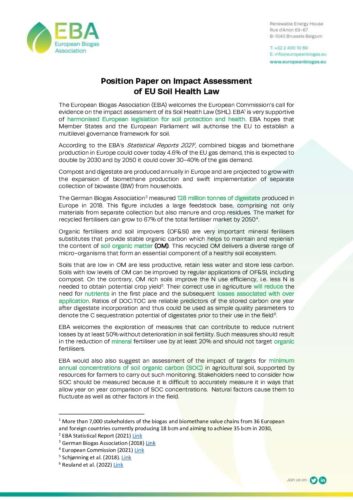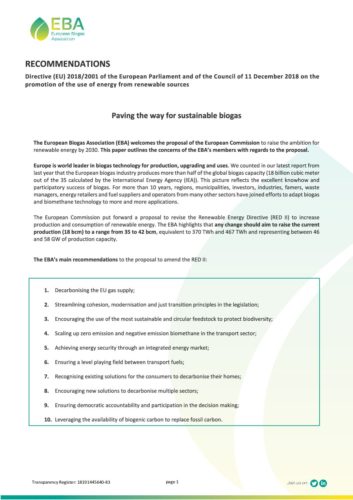Developing a resource-efficient agriculture
The agricultural sector’s contribution to the total GHG emissions of the EU is nearly 10%. By 2030, the Union’s emissions should be cut by 40% (30% in non-ETS sectors like agriculture), the share of renewable energy should be at least 32%. Production of renewable energy on farms can help to reduce and avoid emissions, improve security of supply, bring extra income for farmers and lead even to energy self-sufficiency.
EBA policy recommendations on sustainable agriculture
- Make agriculture more resource-efficient and sustainable: The Common Agricultural Policy must make simultaneous production of food and fuel possible, allowing thereby extra-income for European farmers. Farmers should also be incentivized (through taxation, blending mandates, etc.) to use bio-fertiliser (digestate) to reduce costs and emissions related to mineral fertilisers, and secure food production from the impact of dwindling international reserves of key minerals such as phosphorous.
- Additional benefits from use of organic soil improver (bio-fertilizer/digestate) and cover crops can yield carbon sequestration volumes in soil. The EU Member States should be incentivized to demonstrate soil carbon savings in line with RED II Annex VI B-34 through additional carbon credit accounting (carbon negative credits) eligible for trading within the ETS or other carbon trading regime.
- Introduce long-term, harmonized sustainability criteria for biomass in Europe (as laid down in RED II) after reviewing the Annex IX to encourage sustainable multi-cropping, thus benefiting soil quality and mitigating pesticide application.






